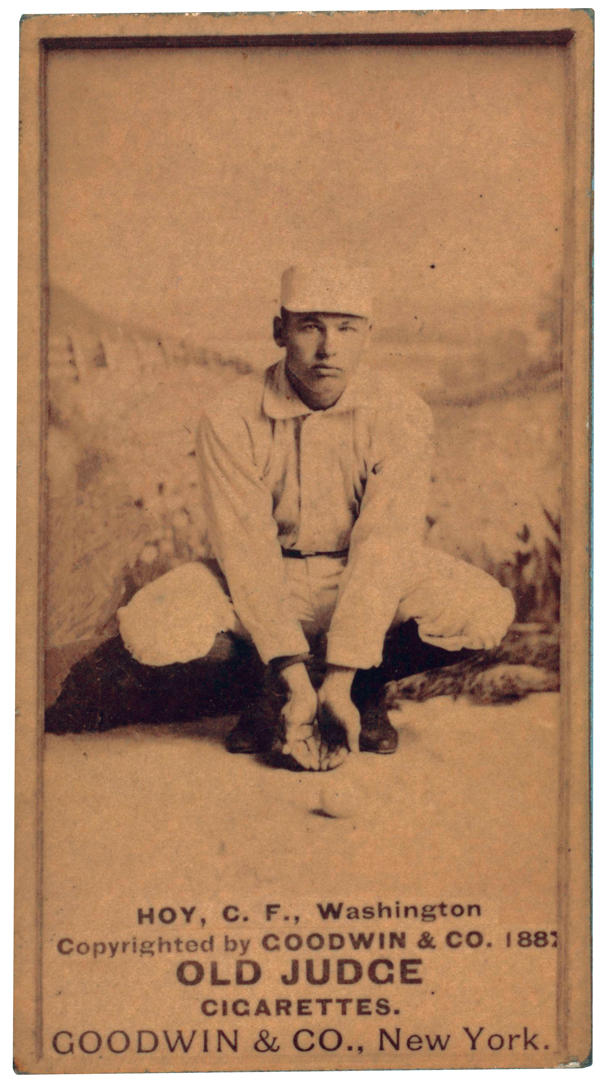The man at the historical heart of the recent Apple watch controversy between the Boston Red Sox and the New York Yankees is William Ellsworth Hoy. He played for 18 seasons as a pro. He died in 1961 at the age of 99.
Followers of baseball history may know him by his nickname, “Dummy.” William “Dummy” Hoy was the first deaf player to have a long career in the major leagues, playing for the Cincinnati Reds, Chicago White Sox and the original Washington Nationals. He batted .288 with 2,054 hits and appeared in 1,798 major league games.
As a graduate of the Ohio School for the Deaf, Hoy was a pioneer in the creation of hand signals in baseball games. He taught his teammates to communicate in sign language.
Umpire Bill Klem is credited by many for being the originator of hand signals in 1905, but accounts of Hoy’s signals go back to 1888 long before an Apple was referred to as anything but edible.
 |
William “Dummy” Hoy unwittingly pioneered the use of hand signals in baseball.
|
Baseball hand signals used by umpires, managers, coaches, and player to player at every level of the game can be traced back to Hoy. I’m guessing that none of the players or coaches on the Red Sox or Yankees knew of Hoy’s contribution to the national pastime.
The world of technology is impacting all sports, with baseball having a literal sign of the times change caused by an Apple watch. MLB investigators looked into claims that the Red Sox used the high-tech watches to steal hand signals from opponents’ catchers. The Apple watches would tell them what type of pitch was being thrown, which would be relayed.
Commissioner Rob Manfred said he’s had complaints from players about sign stealing and how it impacts the pace of play with men on base. He described sign stealing as “a form of behavior that we should not tolerate” and there are rules that would regulate the use of electronic devices being used.
On Sept. 15 the commissioner fined the Red Sox an undisclosed amount, getting to the core of the Apple dispute. He used this penalty as a reminder to the rest of the league that the use of electronic devices to steal signals during games is strictly prohibited.
Sign stealing, which consists of one team intercepting the hand signals of another team, has been a part of baseball from the days of “Dummy.”
In 1951 it was reported that the New York Giants used a telescope from center field to read signs from opposing catchers. Information was sent to Giants players from the bullpen.
As technology advanced, so have the methods of cheating. In 1997, the New York Mets were accused of using a small camera near home plate in Shea Stadium to peek at catchers. In 2011 the Philadelphia Phillies were accused of using binoculars to watch the opposing teams’ catchers. Instant replay video has also helped teams catch onto signs and trends from catchers and pitchers.
“Applewatchgate” has focused attention on the unspoken world of baseball signs. William Ellsworth Hoy, nobody’s “Dummy,” should be enshrined in the Hall of Fame because he helped create the international hand language of baseball.
Andy Dolich is a sports business consultant who formerly was an executive for the Oakland A’s, the San Francisco 49ers, Golden State Warriors and Memphis Grizzlies.





